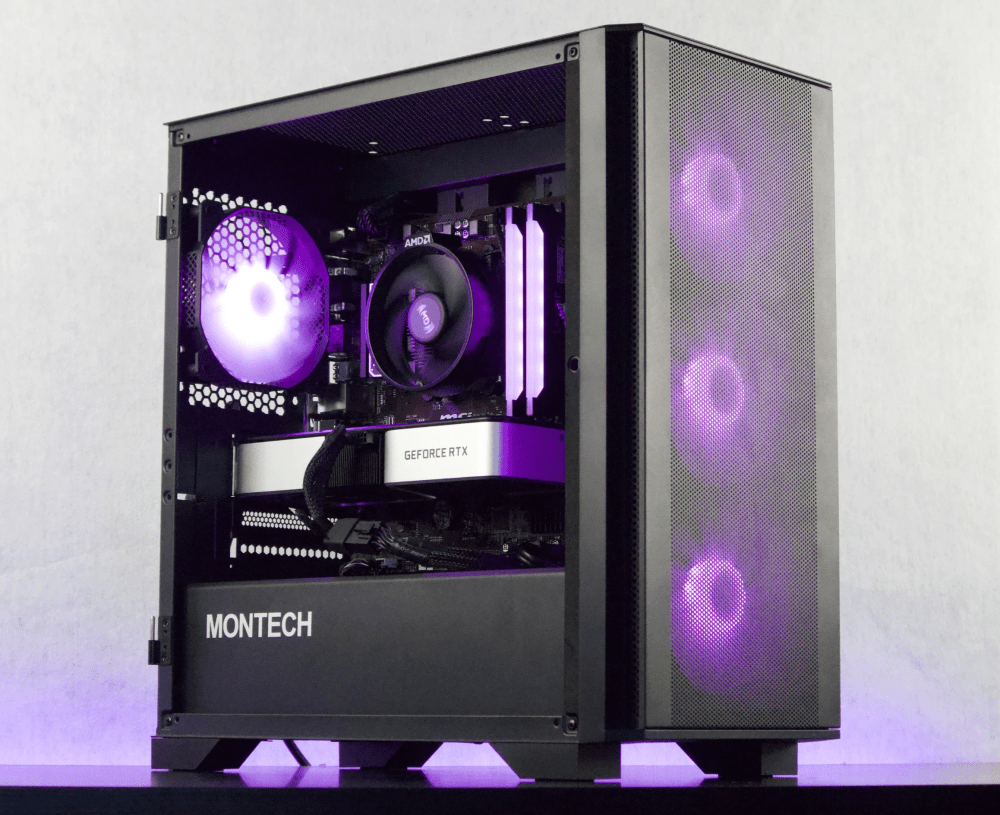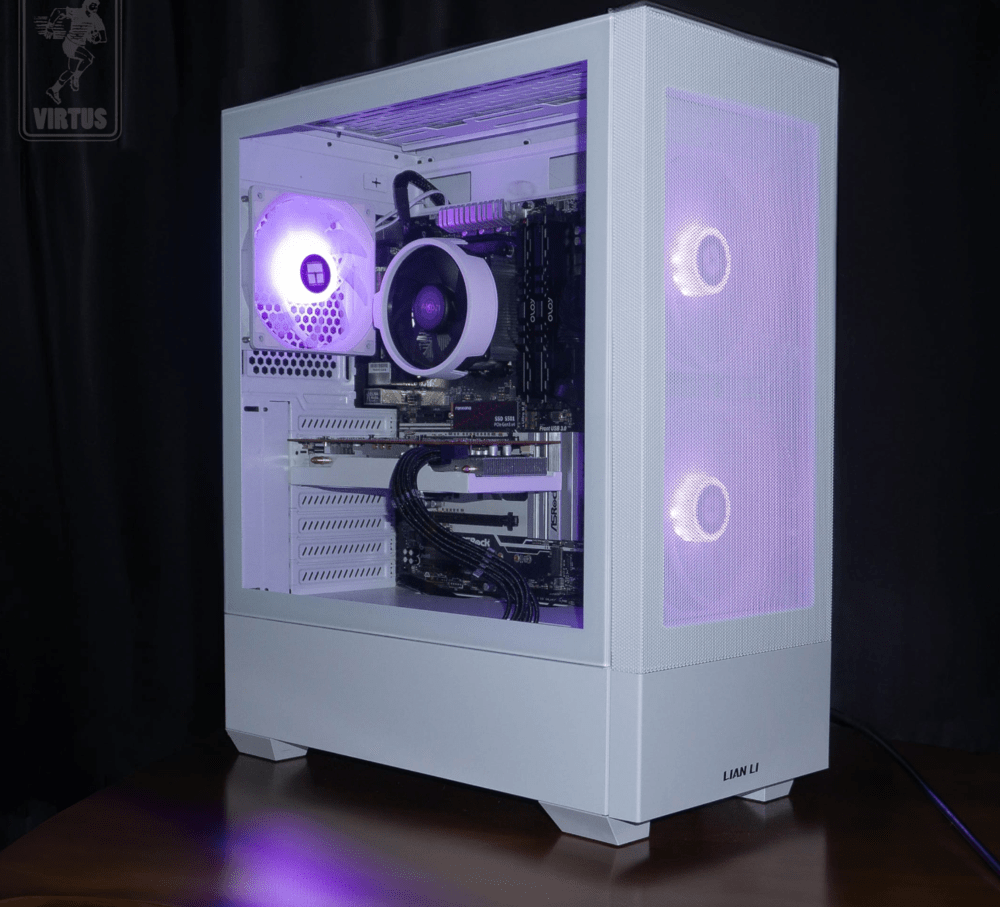Are you looking to upgrade your gaming setup or simply wanting to get rid of your old GPU? Selling your old GPU can not only help you free up some space but also put some extra cash in your pocket. However, knowing how to sell your old GPU effectively can make all the difference in attracting the right buyers and getting a fair price. In this blog post, we will guide you through the process of selling your old GPU, from determining its value to preparing it for sale, and finding the best platforms to sell it on. Whether you're a tech enthusiast or a casual gamer, this step-by-step guide will ensure a successful and hassle-free sale of your old GPU. So, let's dive in and explore the world of selling old GPUs!
Understanding the Basics: Importance and Process of Selling Your Old GPU
Selling your old GPU serves multiple purposes. Not only does it allow you to upgrade to a newer and more powerful graphics card, but it also helps you recoup some of your investment. Additionally, by selling your old GPU, you contribute to the sustainability of the tech industry by promoting the reuse and recycling of electronic devices.
Before diving into the selling process, it's important to understand the basic steps involved. Here is a step-by-step breakdown of the process:
-
Research the market: Start by familiarizing yourself with the current market trends and prices for used GPUs. This will give you an idea of how much you can expect to sell your old GPU for and help you set a reasonable asking price.
-
Evaluate the condition: Assess the physical condition of your GPU. Check for any visible damage, such as bent pins, cracks, or signs of overheating. This evaluation will determine the overall value of your GPU and help you set realistic expectations for potential buyers.
-
Consider the age and specifications: Take into account the age of your GPU and its specifications. Newer GPUs with higher performance capabilities will generally fetch higher prices. However, older GPUs can still be appealing to buyers who are looking for budget-friendly options or specific models for compatibility purposes.
-
Choose your selling method: Decide how you want to sell your old GPU. You can opt for online marketplaces, electronics stores that accept trade-ins, or even sell directly to local buyers or friends. Each method has its own advantages and considerations, which we will explore in more detail later.
-
Prepare your GPU for sale: Before listing your GPU for sale, it's crucial to clean it thoroughly. Dust and debris can affect the performance and aesthetics, so ensure that you clean the cooling fans, heatsinks, and any visible components. Additionally, test your GPU to ensure it is in proper working condition. This will instill confidence in potential buyers and help you avoid any complications during the selling process.
How to Determine the Value of Your Old GPU
Determining the value of your old GPU is a crucial step in the selling process. It helps you set a fair asking price that attracts potential buyers while ensuring you get a reasonable return on your investment. To determine the value of your old GPU, consider the following factors:
-
Research the market value: Begin by researching the current market value of your specific GPU model. Check online marketplaces, forums, and tech websites to see how much similar GPUs are being sold for. Take note of the average price range to get an idea of where your GPU stands in terms of value.
-
Evaluate the condition: The condition of your GPU plays a significant role in determining its value. Be honest with yourself and assess any wear and tear, cosmetic damage, or functional issues. Keep in mind that GPUs in excellent condition typically command higher prices, while those with noticeable flaws may need to be priced more competitively.
-
Consider the age and specifications: The age and specifications of your GPU also impact its value. Research the release date of your GPU model and compare it to newer models with similar or better specifications. This will give you an idea of how the market perceives your GPU's performance capabilities and how it stacks up against newer alternatives.
-
Factor in demand and availability: Take into account the demand and availability of your GPU model. If it's a popular model that is no longer in production, it may have a higher value due to its scarcity. Conversely, if it's a relatively common or outdated model, you may need to adjust your price accordingly to attract potential buyers.
-
Consider bundled accessories or warranties: If you have any additional accessories, such as original packaging, cables, or software, these can add value to your GPU. Similarly, if your GPU is still covered by a warranty, it may increase its appeal to buyers, potentially allowing you to set a slightly higher price.
-
Adjust for market fluctuations: Keep in mind that the market for used GPUs can be subject to fluctuations. Prices may vary depending on factors such as new product releases, changes in technology, or shifts in demand. Stay updated on industry news and monitor market trends to adjust your pricing strategy accordingly.
By considering these factors and conducting thorough research, you can determine a fair and competitive value for your old GPU. This will not only attract potential buyers but also ensure a smooth selling experience. In the next section, we will discuss how to prepare your old GPU for sale, ensuring it is in optimal condition for potential buyers.
Preparing Your Old GPU for Sale
Preparing your old GPU for sale is essential to make it appealing to potential buyers and ensure a smooth selling process. Follow these steps to get your GPU ready:
-
Cleaning your GPU: Start by cleaning your GPU thoroughly. Dust and debris can accumulate over time and affect its performance and appearance. Use compressed air to blow away dust from the cooling fans, heatsinks, and other components. Avoid using excessive force or liquids that could damage the GPU.
-
Testing your GPU for functionality: Before selling, it's crucial to ensure that your GPU is in proper working condition. Connect it to a computer and run stress tests or benchmarking software to check for any performance issues, artifacts, or overheating. If any problems arise, consider addressing them before listing your GPU for sale or clearly highlighting them in the product description.
-
Packaging your GPU safely: Proper packaging is vital to protect your GPU during shipping and handling. Use an anti-static bag to wrap the GPU, ensuring that it is protected against electrostatic discharge. Place it in a sturdy box with sufficient padding, such as foam or bubble wrap, to prevent any movement or damage during transit.
-
Include necessary accessories: If you have any original accessories that came with your GPU, such as cables, adapters, or software, include them in the sale. These extras can add value and make your listing more attractive to potential buyers.
-
Document the condition: Take clear and detailed photos of your GPU from different angles, highlighting any cosmetic flaws or damage. This transparency builds trust with potential buyers and ensures that they have a clear understanding of the GPU's condition before making a purchase.
-
Resetting to factory settings: If your GPU requires any software or driver installations, consider resetting it to factory settings before shipping it out. This ensures that the buyer can set it up according to their preferences without any conflicts.
By following these steps, you can present your old GPU in the best possible light, instill confidence in potential buyers, and increase the chances of a successful sale. In the next section, we will explore various platforms and avenues where you can sell your old GPU.
Where to Sell Your Old GPU
When it comes to selling your old GPU, you have several options to choose from. Consider the following platforms and avenues where you can sell your old GPU:
-
Selling on online marketplaces: Online marketplaces provide a wide reach and potential customer base. Platforms like Jawa, eBay, Amazon, and Craigslist allow you to list your GPU for sale, set your price, and communicate directly with buyers. Take advantage of these platforms' robust search and filtering options to maximize visibility for your listing.
-
Trading in at electronics stores: Many electronics stores offer trade-in programs where you can exchange your old GPU for store credit or cash. Retailers like Jawa, Best Buy, Micro Center, and Newegg have trade-in programs that allow you to bring in your GPU and receive an appraisal. Keep in mind that trade-in values may be lower compared to direct sales, but they offer convenience and immediate payment.
-
Selling to friends or local buyers: Consider selling your old GPU to friends, colleagues, or local buyers who may be interested. Utilize social media platforms like Facebook Marketplace, local buy-and-sell groups, or community forums to connect with potential buyers in your area. Meeting in person for the transaction can provide a sense of security and allow buyers to inspect the GPU before purchasing.
-
Tech forums and communities: Explore tech forums and communities dedicated to computer hardware and gaming. Forums like Reddit's r/hardwareswap or Tom's Hardware have dedicated sections for buying and selling computer components. Engaging with these communities can help you find potential buyers who are specifically interested in GPUs.
When choosing where to sell your old GPU, consider factors such as convenience, potential reach, associated fees, and the level of control you have over the selling process. Each option has its own advantages and considerations, so evaluate your preferences and requirements before making a decision.
In the next section, we will provide you with tips and strategies for successful selling, regardless of the platform you choose.
Tips for Successful Selling
To ensure a successful selling experience for your old GPU, consider implementing the following tips and strategies:
-
Taking quality photos: Capture clear and high-resolution photos of your GPU from different angles. Highlight any unique features or accessories included. Good quality photos attract potential buyers and give them a better understanding of the product's condition.
-
Writing a detailed description: Craft a comprehensive and accurate description of your GPU. Include relevant information such as the model, specifications, age, condition, and any additional accessories or warranties. Be honest about any flaws or issues to set realistic expectations for potential buyers.
-
Setting a fair price: Research the market value of similar GPUs and set a competitive yet realistic price. Consider the condition, age, and specifications of your GPU when determining the asking price. If you're unsure, start with a slightly higher price and be open to negotiation.
-
Handling shipping and returns: Clearly communicate your shipping policies, including the shipping method, tracking information, and estimated delivery time. Consider offering insurance or requiring a signature upon delivery for higher-priced items. Additionally, establish clear return policies to address any potential issues or concerns from buyers.
-
Prompt and professional communication: Respond to inquiries and messages from potential buyers promptly and professionally. Be courteous, helpful, and transparent in your communication. Providing timely and accurate information can build trust and confidence in potential buyers.
-
Promoting your listing: Take advantage of social media platforms, online forums, and relevant communities to promote your listing. Share your listing with friends, gaming groups, or tech enthusiasts who may be interested in purchasing a GPU. The wider your reach, the higher the chances of finding potential buyers.
-
Maintaining security: Be cautious of potential scams or fraudulent buyers. Use secure payment methods such as PayPal or other trusted platforms to protect yourself and your buyers. Avoid sharing personal information and be vigilant of suspicious requests or offers.
-
Positive feedback and reviews: Encourage satisfied buyers to leave positive feedback or reviews after a successful transaction. Positive feedback builds credibility and can attract future buyers.
By implementing these tips and strategies, you can increase the visibility of your listing, attract potential buyers, and facilitate a smooth and successful selling process for your old GPU.
In Conclusion, selling your old GPU can be a rewarding experience both financially and environmentally. By understanding the importance of selling, determining the value, preparing the GPU, selecting the right platform, and implementing effective selling strategies, you can maximize your chances of a successful sale. Good luck with your selling journey!





